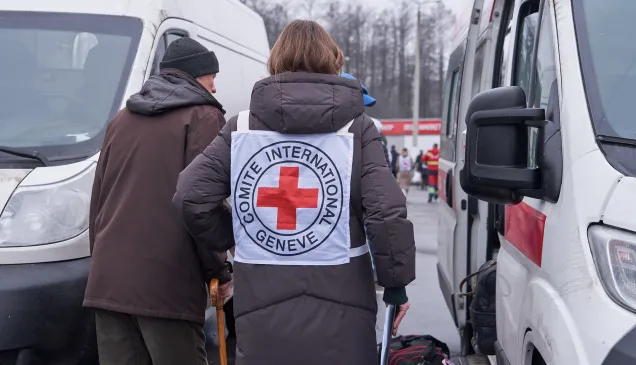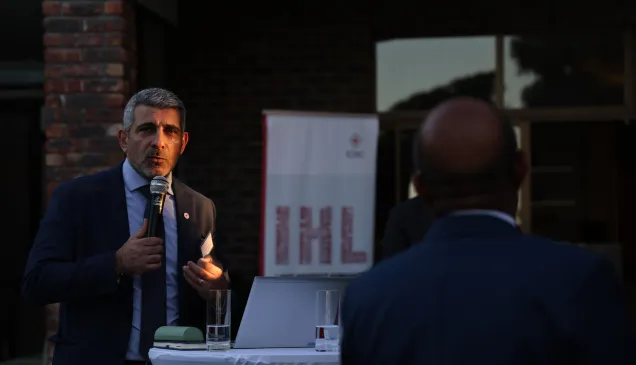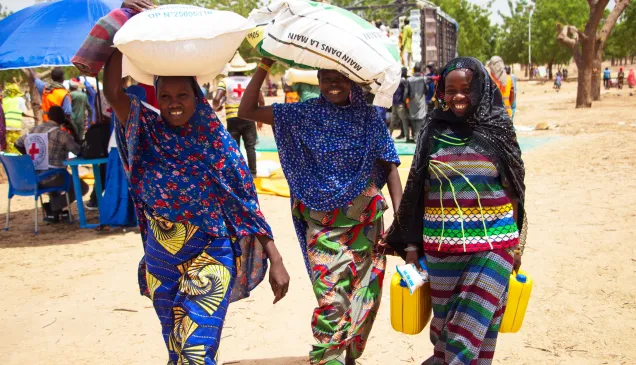Conference of the States Parties to the Chemical Weapons Convention, 2015
Twentieth Session of the Conference of the States Parties to the Chemical Weapons Convention, 30 November – 4 December 2015, The Hague, Netherlands. Statement by the ICRC.
The ICRC first wishes to express its grave concern that, for the third successive year, chemical weapons have been used in armed conflict.
The centenary of the first use of poison gas – during the First World War – which was observed earlier this year, was tainted by the persistent use of chemical weapons during the Syrian conflict. It began with the use of nerve agents in 2013 and the repeated use of chlorine in 2014, and has continued with further use of chlorine in Idlib province between March and May 2015. Most recently, a fact-finding mission of the Organisation for the Prohibition of Chemical Weapons (OPCW) found that mustard gas was used in Marea, near Aleppo, on 21 August 2015.
These are just the confirmed uses of chemical weapons during the past three years. There are also allegations of further use in both Syria and Iraq.
The ICRC condemns the use of chemical weapons by any party to any armed conflict. Such use constitutes a serious violation of international humanitarian law, by which all conflict parties are bound, and the ICRC calls on all parties to the armed conflicts in Syria and Iraq, in the name of humanity, to respect this prohibition.
Although tested in recent years, the strength of the universal norm prohibiting chemical weapons may be seen in the strong reactions of the international community. The ICRC commends the work of the OPCW's fact-finding mission to establish the facts behind allegations and welcomes the establishment, by the United Nations Security Council in August 2015, of the OPCW-United Nations Joint Investigative Mechanism to identify those responsible for the use of chemical weapons in Syria.
Turning to other issues of concern, there are two matters that the ICRC believes deserve more attention from States Parties.
First, as events of the past three years have made tragically clear, the need to be prepared for the use of chemical weapons – that is, prepared to cope with the consequences – remains. Unfortunately, the ICRC's 2007 assessment that there is a lack of international capacity specifically to assist the victims of any use of chemical, biological, radiological, or nuclear weapons still stands.
States and the pertinent international organizations must work to remedy this. In this connection, the ICRC was pleased to see the recommendation in the March 2015 report of the OPCW's Technical Secretariat (The OPCW in 2025: Ensuring a World Free of Chemical Weapons) that the Organisation should seek to play a greater role in responding to emergencies, with the eventual ambition "to engage in a major international response to the hostile use of toxic chemicals, in cooperation with other international organizations."
The ICRC, for its part, is implementing prevention and protection measures for staff members in order to fulfil the duty of care to our staff and to ensure the continuity of our humanitarian operations to assist victims of armed conflict.
The second issue, also raised in the forward-looking report of the Technical Secretariat and in the report of the OPCW Scientific Advisory Board's Temporary Working Group on Verification, is this: States Parties and the OPCW must address the serious risks to the object and purpose of the Convention posed by the development of highly toxic chemicals as weapons for law enforcement – so called "incapacitating chemical agents" or "central nervous system-acting chemicals."
The ICRC – which has done a significant amount of work on this subject, including convening international experts' meetings in 2010 and 2012 – very much welcomes the attention being paid by a growing number of States to the dangers posed by these weapons to life and health, and to the integrity of the Convention.
The ICRC's position, since February 2013, has been that the use of toxic chemicals as weapons for law enforcement purposes should be limited to riot control agents only. It is therefore pleased that at least 9 States have since confirmed a national policy to this effect and that at least 17 States have called for long-overdue international discussions to begin within the framework of the OPCW's policy-making organs. Many more States have now added their voices to these calls during this Twentieth Session of the Conference of the States Parties.
With the collective goal of preventing the re-emergence of chemical weapons in mind, the ICRC urges all States to ensure that national policies and legislation are in place to restrict the use of toxic chemicals as weapons for law enforcement purposes to riot control agents only. It calls on States Parties here today to begin international discussions to resolve this issue without delay.
In closing, the ICRC would like to commend States Parties for their ongoing efforts to completely eliminate chemical weapons and to prevent their re-emergence. The near-universal membership of the Convention is testament to the hard work of States Parties and the Technical Secretariat. The ICRC would also like to welcome the accession to the Convention by Myanmar and Angola during 2015.
There can be no justification for any State to remain outside this Convention. The ICRC urges the remaining handful of States to ratify or accede without delay. In doing so, they will confirm a commitment to ensure that chemical weapons are never again used and to completely eliminate these abhorrent weapons.



